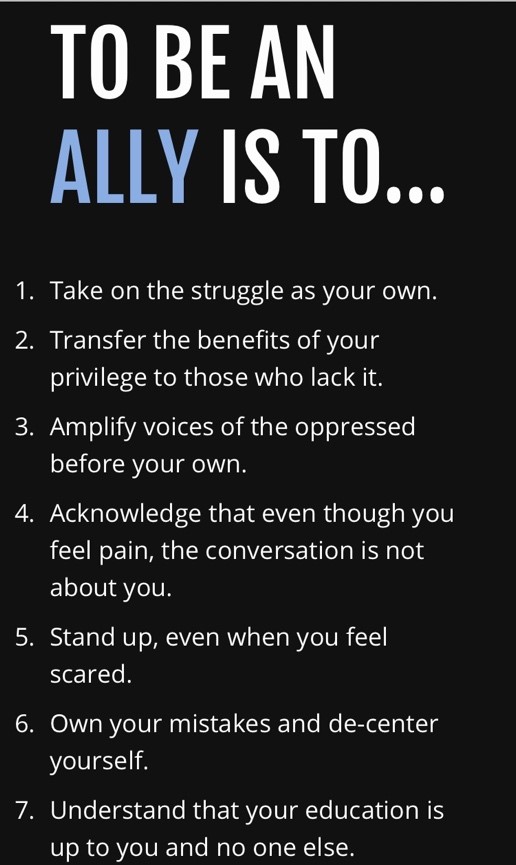By Dr Sasha Simon and Dr Anjam Sultana

In part one of this blog, the authors outlined six key concepts relevant to racism, in order to support race talk within Educational Psychology Services. In part two, we focus on the emotional impact of racism and how we, as educational psychologists, can support colleagues who have been affected by racism and the cumulative effect of George Floyd’s death.
There has been relatively little research, particularly in the UK, into the emotional impact of racism. Existing research has shown the impact of race-related trauma on individual mental and physical health, including the development of post-traumatic stress disorder in some individuals.
In light of this, it is important to recognise the emotional impact of racism for Black and ethnic minority colleagues we suggest that the following recommendations are immediate ways we can support one another:
- Caring: simply asking your colleagues how they are may make the world of difference. Yes, there is an acknowledgment that racism can be a sensitive topic, but avoidance of difficult conversations can be more detrimental for relationships
- Taking a genuine interest: listen more than you speak and make space to actively listen to the lived experiences of Black and ethnic minority educational psychologists. Be curious, in order to understand their emotions and the impact of recent and historic events. It is important to approach conversations from a place of curiosity rather than a position of shame
- Empathy: Educational psychologists often use this Brene Brown video when The principles suitably relate to the Black and ethnic minority experience. Although individuals may not be able to connect with negative race-based experiences, we can all connect with the emotions conveyed. The following phrases can build empathy, connection and ally-ship:
-
- I know that I am in a privileged position but I want to understand your experiences and how you are feeling
- I do not understand your exact experience but I feel privileged that I am able to listen
- I am sorry that you have had to experience this
- I am willing to listen
- I just want to check if you are OK
- I can understand that you would be hurting right now and I want you to know that I am here for you
-
Lead in ally-ship: take the first step to recognise, care, empathise, and seek to understand. Too often, educational psychologists who experience racism can be expected
to lead initiatives and speak on race-related matters. It would be much more impactful for educational psychologists of colour to see their White counterparts leading and making changes to promote anti-racist practice.
What is ally-ship?
Ally-ship can be defined as someone from a non-marginalised group using their privilege to advocate for a marginalised group. From the perspective of this simple definition, all EPs should be allies, but it needs to be expanded to highlight the need for consistent effort, as captured in the following definitions provided by Forbes:
- an active, consistent, and arduous practice of unlearning and re-evaluating, in which a person holding systemic power seeks to end oppressions in solidarity with a group of people who are systemically disempowered;
- any person that actively promotes and aspires to advance the culture of inclusion through intentional, positive and conscious efforts that benefit people as a whole.
Additionally, the website www.guidetoallyship.com suggests that:

In a recent podcast episode entitled ‘The Fine Line between being an Ally and Stealing the Mic: Racism, Education and Self-forgiveness’, anti-racism campaigner Nova Reid, details a powerful representation of ally-ship. In this episode Natalie, an educational psychologist, speaks of her quest for greater knowledge and insight into anti-racism as a White woman. Natalie, vulnerably articulates her journey, using the term ‘walking alongside’ her Black and ethnic minority peers. It paints a beautiful image of ally-ship. Natalie equates her exploratory journey to a scene in the film, The Matrix, where she states that ally-ship feels like taking the red pill and suddenly seeing the world through a different lens. Reid highlights that in ally-ship it is important to recognise where White colleagues hold more power and reinforces the view of colleagues leading in ally-ship.
Natalie also uses the following analogy to reinforce that ally-ship rejects the notion of remaining silent or dismissive:
‘If your colleague had cancer or something had happened to their child or a family member, it would be courteous to ask how they are doing. Similarly, with regards to racial equality, it seems counterintuitive to be silent. The same action should have been enacted for all Black and ethnic minority colleagues.’
Sasha and Anjam are former trainees from the initial training course at the University of Birmingham. They both work as qualified educational psychologists in the West Midlands.
